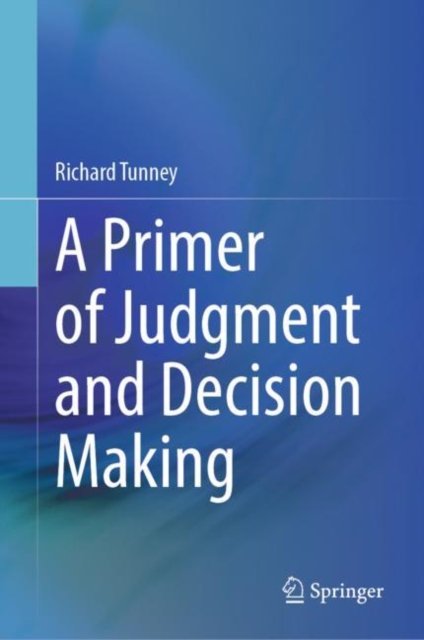
A Primer of Judgment and Decision Making Hardback
by Richard Tunney
Hardback
Description
The book is intended as a primer and discusses the main areas within judgment and decision making.
However, these topics are not siloed. Instead, a narrative arc throughout the book has a higher level of critical appraisal of the key concepts and how they relate to some of the big questions about the nature of human rationality.
The book begins by introducing two perspectives on rationality.
The first describes how we decide on the goodness of a decision.
This is a surprisingly recent concept called Rational Choice Theory, which was formed from a collection of books written around the time of the Second World War, that deal with how we think about risk as a probability and goodness as utility.
In short, Rational Choice Theory argues that to be rational, people should always make the decision that maximizes subjective expected utility.
The book goes on to describe the consensus view that emerged in the late 1960s and came to dominate our thinking about decision making, namely that people rarely make rational decisions.
In fact, many Nobel prizes have been handed out for work showing that humans are not rational creatures (e.g.
Daniel Kahneman, Richard Thaler, Robert Shiller). The book concludes with recent theoretical developments in our understanding of how people make decisions that reconcile Rational Choice Theory with human irrationality. Although aimed primarily at second year undergraduates studying judgement and decision making as a core component of cognitive psychology, the book will also be relevant to third year electives in and MSc programmes.
The book will also interest undergraduates studying economics, and undergraduates studying more general degrees in liberal arts or natural science.
As an introductory text the book assumes no prior knowledge of judgement and decision making, cognitive psychology or economics.
However, the level of the book assumes that the reader is familiar with academic texts and has experience of critical thinking.
A key requirement of the reader is a willingness to relate academic concepts to the real world, and to try and understand the bigger picture about human psychology and its place in society.
Information
-
Out of stock
- Format:Hardback
- Pages:142 pages, 1 Illustrations, color; 17 Illustrations, black and white; XIII, 142 p. 18 illus., 1 illu
- Publisher:Springer International Publishing AG
- Publication Date:16/04/2024
- Category:
- ISBN:9783031569715
Information
-
Out of stock
- Format:Hardback
- Pages:142 pages, 1 Illustrations, color; 17 Illustrations, black and white; XIII, 142 p. 18 illus., 1 illu
- Publisher:Springer International Publishing AG
- Publication Date:16/04/2024
- Category:
- ISBN:9783031569715






